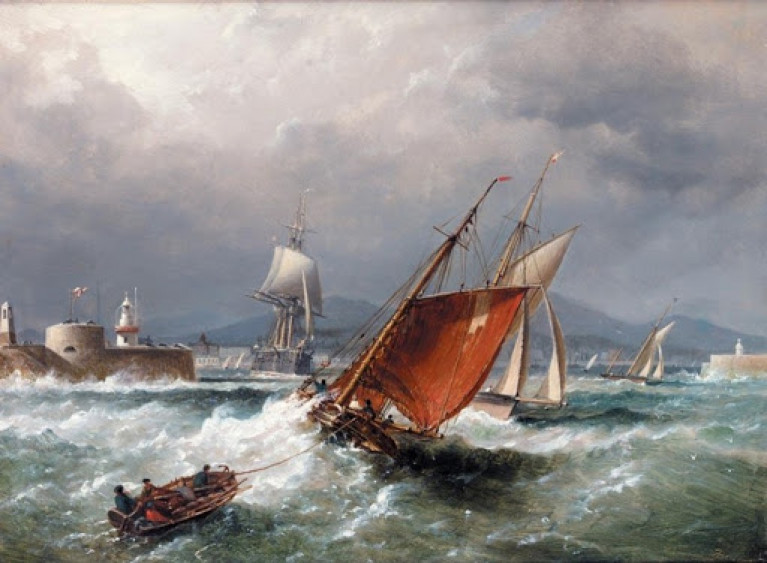Displaying items by tag: Gaff Rigged Vessels
Cormac Lowth Zooms in on Historic Dublin Bay Gaff Rigged Vessels from Maritime Paintings & Photographs
Dublin Bay Old Gaffers Association invites you to join their next Zoom session on Historic Dublin Bay Gaff Rigged Vessels from Maritime Paintings and Photographs, which will be given by Cormac Lowth on Thursday 16th July.
Dublin’s leading maritime historian Cormac Lowth has assembled a fine collection of 19th and early 20th century paintings and photographs showcasing the gaff and square-rigged vessels that graced Dublin Bay. These images include fishing boats, of which there were a great many based in Ringsend, together with cargo vessels - including schooners, brigantines and ketches - and of course sailing yachts, both cruising and racing. The wide variety of these gaff-rigged working and pleasure vessels provided interesting subject matter for Dublin’s artists and photographers during the second half of the 19th century and the early part of the 20th century. With his extensive knowledge of Dublin’s maritime past Cormac will guide us through this unique collection of images which will interest sailors, historians, painters, photographers and anyone fascinated by Dublin’s maritime past.
Cormac’s session will start at 19.30, but you are requested to join the Zoom meeting at 19.00 for general chat before the Q&A session. Joining early will also ensure that any connection issues can be sorted out well before 19.30.
The details of this Zoom meeting are:
- Topic: Historic Dublin Bay Gaff Rigged Vessels from Maritime Paintings and Photographs • Time: Thursday, July 16th 2020, at 19.00
- Link to join the meetng: hOps://us02web.zoom.us/j/85751800759
- Meetng ID: 857 5180 0759
This is all the information you need to join the meeting - there will be no additional details required or provided on the day of the session, and you do not need a password to join.
If you join the Zoom meeting by clicking the link above, you will not need the Meeting ID, which is only required if you want to join the session through other means





























































